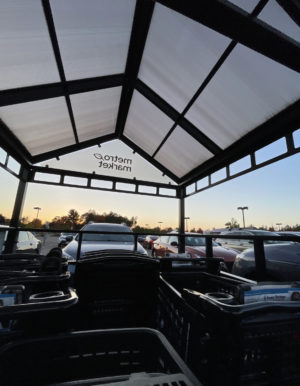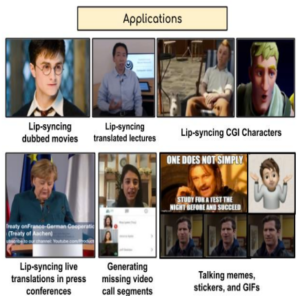Crenshaw speaks out against inequality
A look at intersectionality
May 3, 2019
NAOMI CLENDENNING
The Mirror
There is always a need to do more, and Kimberle Crenshaw explained the need to do more to advocate for the urgency of intersectionality.
American civil rights advocate Kimberle Crenshaw is a leading scholar of the critical race theory, a theoretical framework that uses critical theory to examine society and culture as they relate to categorizations of race, law, and power. Crenshaw has dedicated her life to sharing her knowledge of race and gender issues at the University of California Los Angeles School of Law and Columbia Law School.
In October of 2016, Crenshaw presented a TED Talk about the urgency of intersectionality. During an activity, four African American men who were killed by the police over the last two and a half years were named. When members of the audience did not know the names, they were asked to sit down. Crenshaw then continued the activity by naming four African American women who were killed by police in the last two years. By the end of the activity, Crenshaw said about four individuals were left standing.
“Only one thing distinguished the names that you know from the names that you don’t know: gender,” Crenshaw said.
This activity had been done with a variety of groups, women’s rights activists, students, civil rights groups, professors, psychologists, sociologists, and progressive members of Congress.
“The awareness of the level of police violence that black women experience is exceedingly low. There are two issues involved here. There is police violence against African Americans, and there is violence against women, two issues that have been talked about a lot lately,” Crenshaw commented.
The idea of an intersection of streets was used to describe why there was a need to bring awareness to intersectionality. In her example, a girl was in the direct center of an intersection being hit by the traffic on both streets, yet an ambulance which represented the current laws in place, was only able to treat her injuries if it could be proven that she was harmed on the first road or the second road, but not directly where the roads overlap.
Crenshaw’s example of the roads was based off a case where an African American woman was not hired at a local car manufacturing plant. The woman brought her case to the courts stating that she believed she was not hired because she was an African American woman. The judge dismissed the case stating that the company hired African Americans, who were primarily men working with the machines, and women, who were mostly white and worked as secretaries.
“Many years ago, I began using the term ‘intersectionality’ to deal with the fact that many of our social justice problems like racism and sexism are often overlapping, creating multiple levels of social injustice.”
Crenshaw said she went on to learn that there were many cases where intersectionality was necessary. The groups that she named included racism, sexism, ableism, transphobia, homophobia, and classism.
“All of these social dynamics come together and create challenges that are sometimes quite unique.”
Examples were cited by Crenshaw, solidifying her case that intersectionality is an urgent need.
“Black girls as young as seven, great grandmothers as old as 95 have been killed by the police. They have been killed in their living rooms, in their bedrooms. On the streets, in their cars. Getting groceries while black, having a mental disability while black.”
Crenshaw closed her speech by talking about the need to do more. There are activists who speak out against the lack of intersectionality, but Crenshaw says the need to speak out should be gone and that intersectionality should already be recognized.
To view the TED Talk, go to ted.com/talks/kimberle_crenshaw_the_urgency_of_intersectionality?referrer=playlist-revolutionary_women#t-1043566



































































